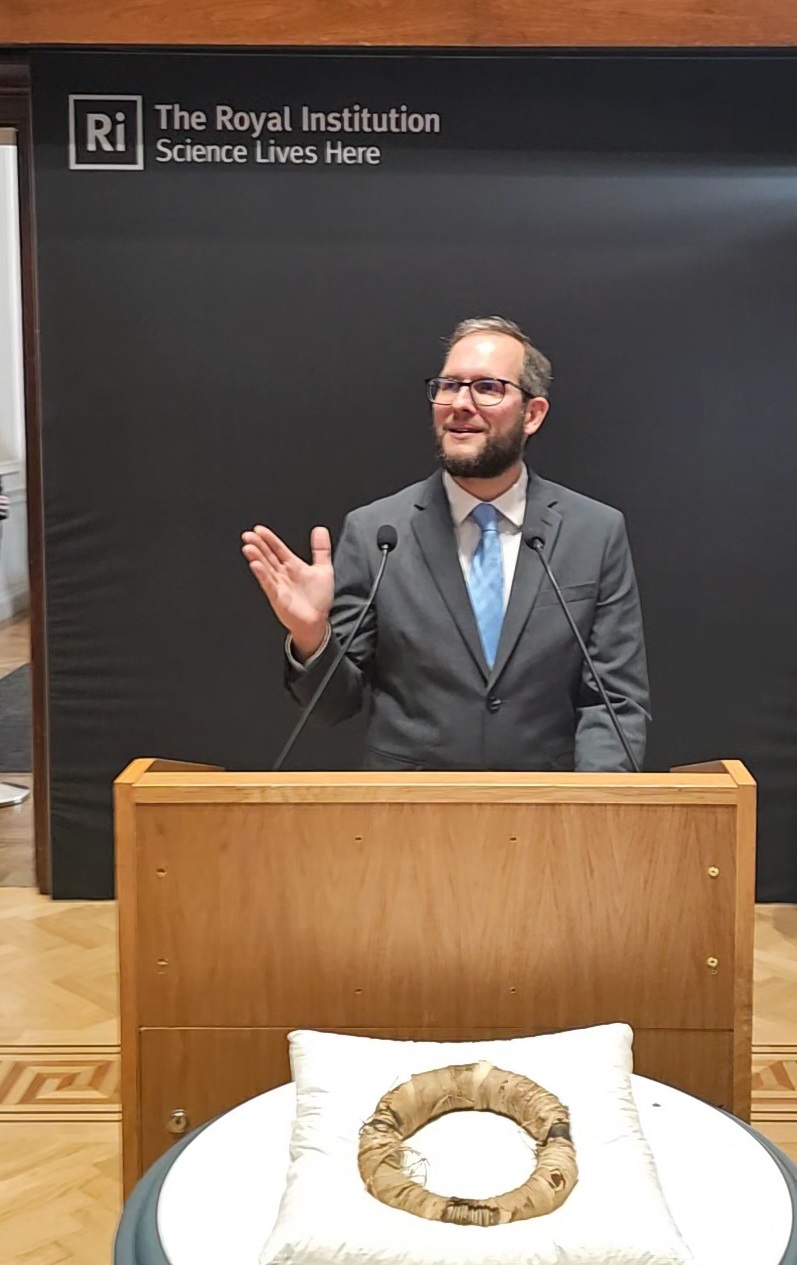Wayne State University School of Medicine Assistant Professor of Psychiatry and Behavioral Neurosciences Nicholas Mischel, M.D., Ph.D. ’15 was elected to serve on the Clinical Transcranial Magnetic Stimulation Society’s Board of Directors for a three-year term, and as co-chair of its Membership and Outreach Committee.

The clinical TMS society is an international medical society dedicated to optimizing clinical practice, supporting research and increasing access to high-quality, evidence-based Transcranial Magnetic Stimulation.
TMS is a noninvasive brain stimulation outpatient therapy cleared by the U.S. Food and Drug and Administration for treatment of depression in 2008 and for treatment obsessive-compulsive disorder in 2018. TMS was originally used in the 1980s for brain mapping purposes. It uses a high-intensity magnet to focally stimulate neurons.
Dr. Mischel attended and presented to the board at the society’s annual meeting, held June 13-16 at the Excel Centre in London. The society has more than 1,000 members in 45 countries.
He previously served as a member of both committees, as well as of the Education Committee and with a group of training faculty who participate in international training courses.
“Five years ago, TMS was a highly niche service within brain science, so I joined the CTMSS and became involved just to meet other clinician-scientists that practiced direct neuromodulation like TMS,” he said. “Also, the CTMSS is a smaller society, and so there is more opportunity for a junior person to become involved. The CTMSS is an international society, so I have had the opportunity to travel to places like London, Melbourne, Vancouver and coast-to-coast in the United States.”
Dr. Mischel, who earned his degrees in Medicine and Physiology from the School of Medicine in 2015, is director of Interventional Psychiatry and Neuromodulation Research. Like his research, the society is clinically focused with bench-to-bedside translational research aims. The society solicits clinical outcomes data from members and the research committee includes highly accomplished investigators.
“My goal is to make brain simulation an accepted, common, and accessible part of medical training and practice,” he said.